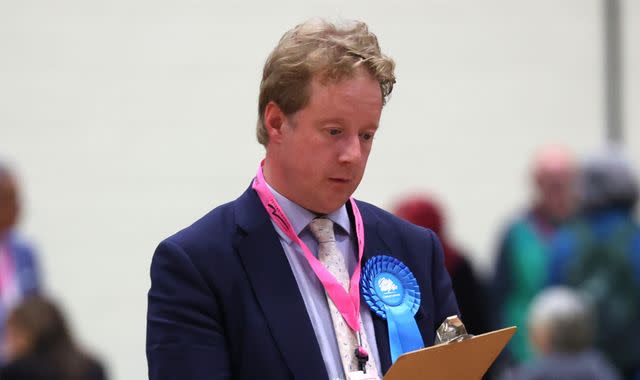Conservative Member of Parliament (MP) Paul Bristow has been unceremoniously dismissed from his government position after breaking ranks with the UK government to advocate for a ceasefire in the conflict between Israel and Hamas. Bristow, who served as a parliamentary private secretary at the Department for Science, Innovation, and Technology, penned a heartfelt letter to Prime Minister Rishi Sunak, imploring support for a “permanent” halt to hostilities in Gaza. This bold move by the MP has ignited a political storm, raising questions about political loyalty, humanitarian concerns, and the complex dynamics surrounding the Israel-Hamas conflict.
MP’s Bold Move: Defying Party Line for Gaza Ceasefire
Paul Bristow’s act of defiance came in the form of a heartfelt letter addressed to Prime Minister Rishi Sunak, urging support for a permanent ceasefire in the ongoing Israel-Hamas conflict. While the UK government had publicly endorsed “humanitarian pauses” to facilitate aid delivery to the beleaguered Gaza Strip, they stopped short of fully supporting a ceasefire, citing Israel’s right to self-defense. In his letter, Bristow made a passionate plea, stating, “A permanent ceasefire would save lives and allow for a continued column of humanitarian aid to reach the people who need it the most.” This vocal stance by a Conservative MP against the official party position reflects the depth of concern surrounding the conflict and its humanitarian impact.
Bristow further elaborated on his concerns via a post on his Facebook page, emphasizing the distinction between “ordinary Palestinians” and the militant group Hamas. He questioned the wisdom of Israel’s actions and the heavy toll it has taken on innocent Palestinian lives. Bristow’s view was clear: civilians should not suffer collective punishment for the actions of Hamas. This public expression of empathy for the Palestinian people and criticism of Israeli actions has put Bristow at odds with his own party and government.
Repercussions and Support: Downing Street’s Decision and Public Reaction
The fallout from Bristow’s outspoken plea for a Gaza ceasefire was swift. On Monday, Downing Street officially confirmed that the Conservative MP had been asked to step down from his government role due to “comments that were not consistent with the principles of collective responsibility.” This decision underlines the significance of party unity within the Conservative ranks, where loyalty to the official party line is highly valued.
While Bristow’s actions drew reprimand from within his party, it also garnered support from various quarters. His constituency, Peterborough in Cambridgeshire, boasts a significant Muslim population, almost double the national average. Bristow co-chairs the All-Party Parliamentary Group on British Muslims, which was established to address the concerns and contributions of Muslim communities. According to The Telegraph, Bristow remains steadfast in his commitment to representing the concerns of his Muslim constituents and advocating for a ceasefire in Gaza.
A Representative’s Dilemma: The Muslim Community’s Perspective
Paul Bristow’s stance on the Gaza conflict aligns closely with the concerns of his Muslim constituents, who are keenly invested in the issue. His dismissal has raised questions about the balance between party loyalty and representing the diverse views of his constituency. This dilemma is further complicated by the fact that several shadow ministers within the opposition Labour party have openly advocated for a ceasefire, highlighting the internal disputes within both major political parties on this matter.
Bristow’s expulsion from his government role serves as a poignant example of the complex interplay between personal convictions, party unity, and the weight of representing diverse communities. While this incident showcases the challenges faced by politicians in navigating such contentious issues, it also underscores the importance of voicing humanitarian concerns in the face of ongoing conflicts with far-reaching consequences.
In the wake of Bristow’s departure from his government position, the debate surrounding the Israel-Hamas conflict continues to simmer, prompting questions about the role of party discipline versus the duty of elected representatives to advocate for the concerns of their constituents. As the UK government maintains its stance on the conflict, Paul Bristow’s bold move has thrust the issue of a Gaza ceasefire into the spotlight and ignited a broader discussion on the role of individual conscience in politics.
















